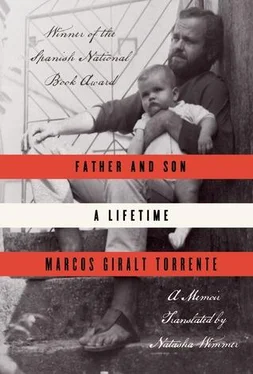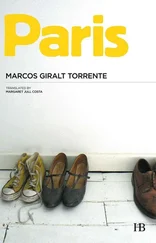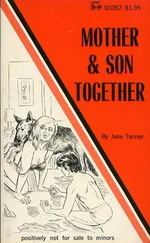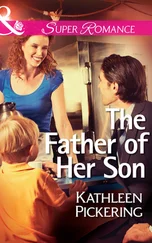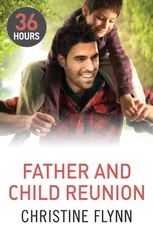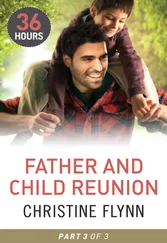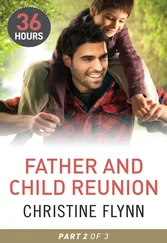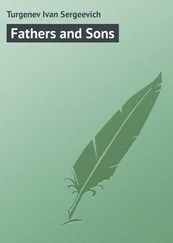Or he isn’t in the mood.
Then, if it’s impossible to go out, I force him to watch a movie (nothing dark; classic comedies by Lubitsch or Howard Hawks), and more and more often we listen to music, albums that he asks me to buy: Dylan’s Modern Times , Tom Waits’s Orphans , JJ Cale and Eric Clapton’s Road to Escondido , a Georges Brassens collection, an old Leonard Cohen album, another by Portabales, which have the virtue of lifting his spirits.
Every day, too, we repeat the same nighttime routine. I help him into bed, arrange on his bedside table everything he might need if he wakes in the middle of the night, and sit for a while at the foot of his bed … When at last I go up to the apartment where my wife and I sleep, I call him briefly on his cell phone to check that the monitor is working, and no matter what kind of day it’s been, he whimpers for a few seconds, pretending to cry like a baby. Sometimes — rarely — after that heroic display of humor, I leave the monitor in the care of my wife and escape to a bar to meet some friend. What never changes is our morning ritual, which follows the same pattern as the nighttime one: a pretend whimper before he says good morning and rouses himself.
Meanwhile, just before Christmas, his oncologist tells us that he’s very weak and that he should try a break from the treatment, and later, taking me aside, she explains that the chemotherapy isn’t working and it won’t be administered to him again. I should prepare for an end that won’t be long in coming, she warns. At first she’s reluctant to give me a time frame, but finally she allows that it might be a month, three at most.
Thanks to a friend, I’ve found a doctor willing to honor the wishes expressed in my father’s living will. If before I had no doubts about what I’m preparing to do, I have even fewer when I learn from the doctor the many painful forms — depending on which organ fails first — in which something as apparently simple as death can present itself. After he tells me what symptoms to watch for so that I’ll be ready, I leave the office with a strange sense of duty done, which automatically rusts over with grief when I get home and face my father’s gaze.
The Christmas celebrations are a prolongation rather than an interruption; a confirmation, not a departure. We spend the night of the twenty-fourth in Madrid with his family. He’s happy, has a few drinks, and though no one treats him with special deference and things are lively with all the children around, I can see in people’s expressions and their manner the same sense of anticipated mourning that has come over me. Days later we go to Galicia with my mother and my wife. Before we board the plane, he tries to convince us to change our minds, with the argument that he’s just been there, but in the end he seems to enjoy the trip. He takes pleasure in the house, our drives, any distraction. One day when he’s alone, he slips as he’s hurrying to answer his cell phone. He cuts himself and can’t get up. I still have the gauze and disinfectant that I used to tend to him. One day he buys a vacuum cleaner. Another day he paints greenish gray the frame of a Renaissance panel painting belonging to my mother. The night of the thirty-first, as the year is rung out, he sits in a chair and I stand next to him. We both know that we’ll toast each other first and wait until later to toast the others, but a certain amount of time — a very long time, it seems to me — passes before we do, and during that time we stare at each other. His eyes are very open and fixed on mine, and though I force myself to smile, I can’t keep it up as long as he can. How to wish someone a happy new year when he won’t have one? His gaze doesn’t flag, but mine slips away for an instant as I bend toward him, tapping his glass with mine, wishing him a happy new year, and giving him a kiss as I try to smile. His is the distorted gaze of a sick man, which is why it’s hard to interpret; I don’t know whether what he seeks in my face is the vision of a future that’s still unknowable, or whether it’s the next step: the recognition of his fate and an acquiescent desire to comfort, to feel and elicit feeling, to give what will soon be impossible for him to give.
In January, back in Madrid, everything happens with deceptive slowness. I look for a home health aide; I teach the doctors who begin to visit us not to treat him like someone terminally ill; I keep careful track of the passing days and his strength in order to decide when to give him the cortisone that will grant him a ten-day grace period; I call his oncologist in order to carry on a simulated conversation in his presence that makes him believe that all is not lost, that he’ll restart the treatment when he’s stronger; I get someone he trusts to ask him whether he’d like to see the friend he met in Brazil, not wanting him to be left with that wish, if he has it; I gather photographs and biographical material and write the draft of an obituary to send to the newspapers when the moment comes; I buy a hospital bed, which, in addition to making his life easier now that he spends so much time lying down, is intended as false proof that the end isn’t so near; and meanwhile, I continue to oversee the renovation work on the apartment where we’ll supposedly live, the completion of which he pleads with me for, asking with growing insistence whether I think he’ll see it finished, whether I think he’ll ever live there.
I remember one sunny morning when we go out for a walk with my mother and visit the San Isidro Museum; I remember another morning, this time with my wife, when we have breakfast on the Plaza Mayor and then try to go to FNAC to buy music; I remember a lunch at my aunt’s house; I remember pirated DVDs of Marie Antoinette, Little Miss Sunshine , and The Queen ; I remember friends coming to say goodbye; I remember the visit of two young artists, women, who — not by chance, I believe — my father greets with Tom Waits, the most jarringly discordant of all the albums in our scanty collection at the pseudo-duplex; I remember a day when we have lunch at a Chinese restaurant and afterward go to visit a photographer friend, and as we drink whiskey and listen to an old Slim Gaillard and Slam Stewart jam session, the friend takes twenty shots of us with a Leica; I remember one day when he surprises me by asking me to buy paper and watercolors; I remember one morning when I give him a new appointment book and he fills out the first page in shaky handwriting, giving the address of the building where it was now almost certain that he would never live; I remember a tea that I prepare, according to his instructions, for three of his female cousins; I remember a friend, someone he hasn’t seen in a while, who brings him two CDs of Mozambican music from the seventies; I remember his praise for his new bed; I remember the first time he doesn’t get up until noon; I remember one morning when I come down from the apartment where my wife and I sleep to find him collapsed on the bathroom floor, unable to get up; I remember his look of mute assent when I tell him that from now on, I’ll sleep in the apartment with him, on a mattress on the floor; I remember the nights when, if he needs to go to the bathroom, he rings a little bell to call me and I assist him in his fragile walk; I remember the extreme care with which he listens to everything I tell him regarding his condition; I remember his growing detachment from the reality that surrounds him, his lack of interest in anything to do with his past struggles; I remember his weary words after the visit of two disciples who come to see him on one of his last days and talk to him about painting, thinking to entertain him; I remember the drop of blood that falls on one of my shoes when I bandage a scrape for him. I’m wearing them now; the reddish ring is still visible.
Читать дальше
